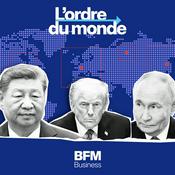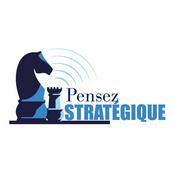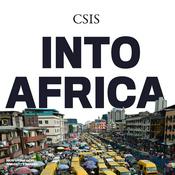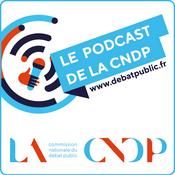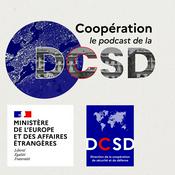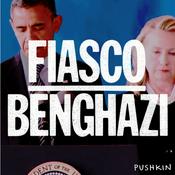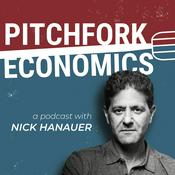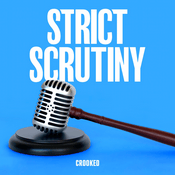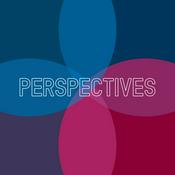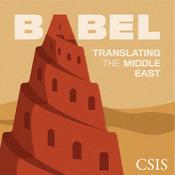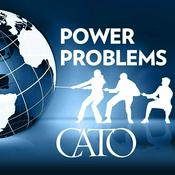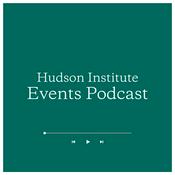158 épisodes
- Today's podcast hosted by the City Bar's Presidential Task Force on Artificial Intelligence and Digital Technologies explores the ethical and legal dimensions of informed consent in AI healthcare settings. Anne Zimmerman, Chair of the City Bar’s Bioethical Issues Committee and Editor-in-Chief of the Voices in Bioethics Journal at Columbia University, Alex John London from Carnegie Mellon University and Susannah Rose from Vanderbilt University Medical Center. The discussion covers the significance of informed consent in healthcare, challenges with AI integration, patient autonomy, regulatory issues, and the balance between disclosure and effective use of AI. It also delves into potential impacts on patient care, operational uses of AI, and the importance of building trust and communication between clinicians and patients.
If you are interested in learning more about emerging AI developments and policy, join us for the 2026 Artificial Intelligence Conference on June 18 to hear from industry experts and connect with leading legal professionals across the field.
00:00 Introduction to the Podcast and Guests
01:30 Understanding Informed Consent in Healthcare
02:32 Ethical Considerations of AI in Healthcare
06:05 Challenges and Frameworks for AI Consent
06:47 AI's Impact on Clinical and Operational Settings
07:28 Patient Autonomy and AI Decision-Making
11:19 Regulatory and Safety Concerns with AI
17:12 The Role of AI in Patient Communication
18:37 Equity and Justice in AI Deployment
20:10 Future of AI in Healthcare and Concluding Thoughts
29:43 Closing Remarks and Podcast Information - In this episode, Jerome Walker, co-chair of the Presidential Task Force on Artificial Intelligence and Digital Technologies, convenes Task Force subcommittee members Austin Brown, David Lisson, and Stuart Levi to examine President Trump’s December 11 Executive Order, "Ensuring a National Policy Framework for Artificial Intelligence." They explore key issues, including the executive order’s implications and challenges; the evaluation of state AI laws and potential federal restrictions on state funding; the creation of an AI litigation task force; and whether this approach can effectively balance innovation with regulation. The panelists also share their perspectives on how AI policy may evolve under this new national framework.
If you are interested in learning more about emerging AI developments and policy, join us for the 2026 Artificial Intelligence Conference on June 18 to hear from industry experts and connect with leading legal professionals across the field. Register at: https://services.nycbar.org/SLIT/
00:00 Introduction and Overview of the Executive Order
09:08 Challenges in Establishing a National AI Framework
15:44 Implications of the AI Litigation Task Force
34:44 Federal Funding and State AI Laws
41:32 Preemption and Deceptive Conduct in AI Models
47:01 Future Outlook
55:56 Conclusion and Final Thoughts NY Passes Emerging Technologies Amendments to the Uniform Commercial Code with City Bar's Help
06/12/2025 | 1 h 41 minThe New York Emerging Technologies Amendments to the New York Uniform Commercial Code are the result of a multi-year collaboration between the City Bar (led by the City Bar Presidential Task Force on Artificial Intelligence) and the Uniform Law Commission, including the New York State delegation to the Uniform Law Commission.
This significant legislation modernizes the New York UCC to address advances in technology and digital assets, ensuring that New York remains the preferred jurisdiction for innovations in commerce and finance.
In this episode, Task Force Co-Chair Jerome Walker sits down with City Bar stakeholders – including the City Bar Director of Advocacy (Elizabeth Kocienda) and two Uniform Law Commissioners from the Task Force (Ed Smith and Neil Cohen) – to talk about the years-long advocacy effort behind the passage of this bill, and to unpack the nuts and bolts of the bill’s changes to New York’s Uniform Commercial Code.
Together we’re celebrating a victory that preserves New York’s leadership in the world of commerce and finance.- Today we delve into the intricate world of AI assessment, review and audit methodologies, focusing on international frameworks and regulatory approaches. The discussion features experts from the City Bar Presidential Task Force on Artificial Intelligence and Digital Technologies, including Azish Filabi (American College McGuire Center for Ethics and Financial Services), Rim Belaoud (Forensic Risk Alliance), Nikhil Aggarwal (Deloitte Anti Money-Laundering), Lenka Molins (Oxford Internet Institute) and Jerome Walker (Task Force Co-Chair). They explore the definitions, methodologies, and challenges of AI audits across different jurisdictions such as the US, EU, Canada, and the UK, providing perspectives on issues related to methodologies, bias, transparency, and accountability. The episode also covers practical approaches for organizations to review AI models and highlights the importance of robust AI governance in various sectors, including financial services, AML, CFT, fraud, and export controls.
00:00 Introduction to the Podcast
00:50 Overview of AI Assessments, Reviews, and Audits
02:20 Key Definitions and Concepts in AI
05:44 Panelist Introductions
08:39 Discussion on Responsible and Trustworthy AI
18:33 Training AI Models and Explainability
22:33 Challenges in AI Assessments and Reviews
27:09 Global Perspectives on AI Audits
39:10 Practical Approaches for AI Model Reviews
53:57 Key Skills for AI Model Audits
59:27 Introduction and Areas of Practice
01:01:31 AI in Anti-Money Laundering and Counter-Terrorist Financing
01:07:36 AI Models in Fraud Detection
01:14:41 Export Control on AI Models
01:21:35 International AI Audit Methodologies
01:27:42 Challenges in AI Audits
01:42:10 Accountability in AI Audits
01:46:13 Conclusion and Final Thoughts - The Presidential Task Force on AI and Digital Technologies welcomes you to Wexford, a fictional city that has purchased AI-enabled law enforcement tools with a black box provision from a tech vendor. Task Force member Elizabeth Daitz moderates a discussion on the complexities of AI usage in criminal investigations and prosecution. Panelists Christian Quinn, Andrew Warshawer, Jerome Greco, and the Honorable Paul Grimm provide insightful perspectives on the significance of the black box provision, ethical and legal implications, and the need for transparency and coordination among stakeholders to ensure these tools are used effectively and justly in the criminal justice system.
00:00 Introductions
02:18 Fictional Case Study: Sentinel AI in Law Enforcement
03:31 Regulatory Landscape and Challenges
05:50 Bias and Explainability in AI
12:19 AI in Law Enforcement
18:01 Legal Implications of AI in Prosecution
35:52 Defense Perspective on AI Evidence
43:54 Challenging Unverifiable Evidence
46:57 Litigation Strategy and Expert Witnesses
49:00 Economic Barriers in Defense Technology
53:33 Judicial Perspectives on AI Evidence
01:13:53 Key Takeaways and Leadership in AI
01:22:11 Conclusion and Final Thoughts
Plus de podcasts Gouvernement
Podcasts tendance de Gouvernement
À propos de New York City Bar Association Podcast
Podcast by New York City Bar Association
Site web du podcastÉcoutez New York City Bar Association Podcast, Guillaume Boudy - Parlons Suresnes ou d'autres podcasts du monde entier - avec l'app de radio.fr

Obtenez l’app radio.fr gratuite
- Ajout de radios et podcasts en favoris
- Diffusion via Wi-Fi ou Bluetooth
- Carplay & Android Auto compatibles
- Et encore plus de fonctionnalités
Obtenez l’app radio.fr gratuite
- Ajout de radios et podcasts en favoris
- Diffusion via Wi-Fi ou Bluetooth
- Carplay & Android Auto compatibles
- Et encore plus de fonctionnalités


New York City Bar Association Podcast
Scannez le code,
Téléchargez l’app,
Écoutez.
Téléchargez l’app,
Écoutez.




